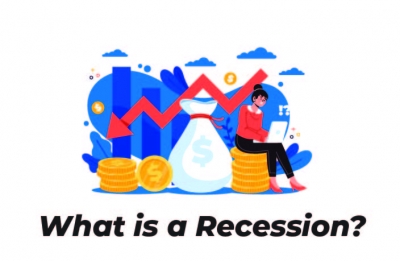
A recession refers to a significant decline in economic activity. In other words, it is a period when trade and economic activities slow down. It is marked by a fall in industrial production, declining profits and income, and also a rise in unemployment rate. The fall in GDP (Gross Domestic Product) during successive quarters. lasting for at least six months, signals recession. A recession has a damaging effect on jobs and people, with job insecurity and uncertainty causing deterioration of the physical and mental health of workers.
Why does it occur?
Recessions occur when there is a noticeable drop in spending due to varied factors such as the ongoing COVID-19 pandemic that has brought the entire world to almost a standstill, the Ukraine-Russia war that disrupts the global supply chain, imports and exports, bad business practices, lack of or tightening of liquidity (assets such as cash), etc. You might have read about companies laying off employees in the news recently. This happens when businesses do badly, having ripple effects on workers, consumers, and the stock market – this is a clear signal of recession. A recession is a vicious cycle spreading from region to region: when businesses cease to expand, workers are laid off to reduce costs; in the absence of income/wages or earning capacity. spending drops: when there is no demand or fall in demand for products and services, the economy stagnates resulting in fall in GDP (By the way, GDP is the total value of goods and services produced within a country during a specific period, say a year. It determines the size of an economy. According to reports, as of January 2022, India’s GDP is about $3.1 trillion).
Measures to tackle it
There are many ways to tackle recession. Let’s look at a few now. To tackle it, governments have to infuse more money into the system, control price rise, reduce interest rates, and improve credit flow (easy availability of loans) to industry. They need to put money into people’s hands by reducing taxes, making loans cheaper, and addressing problems of unemployment to revive spending. They should encourage investments in the market, bring down surcharges (additional charges levied on purchases) on imports, and provide attractive incentives to exporters.
Picture Credit : Google




